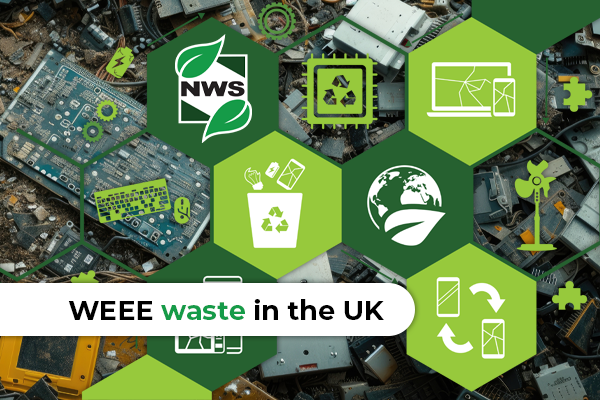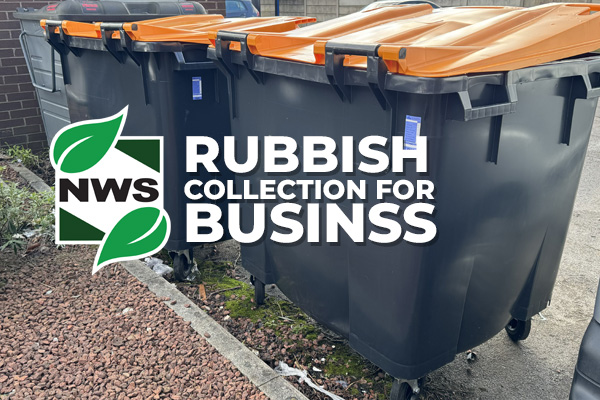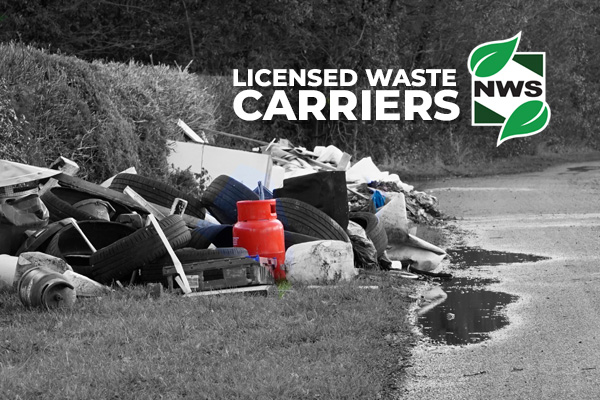In the UK today, businesses are increasingly recognising the importance of sustainable practices to minimise their environmental impact and contribute to a more sustainable future. One crucial aspect of sustainability is waste management. In this article, we will explore the significance of adopting sustainable waste management practices in business, including the benefits it brings, such as reducing environmental impact, improving corporate social responsibility, and attracting eco-conscious customers. We will also provide insights into recycling programs and eco-friendly waste disposal methods that businesses can implement.
Reducing Environmental Impact
Implementing sustainable waste management practices allows businesses to significantly reduce their environmental footprint. Traditional waste disposal methods, such as landfilling or incineration, contribute to pollution, greenhouse gas emissions, and depletion of natural resources. By adopting sustainable practices like recycling, composting, and waste reduction strategies, businesses can minimise the amount of waste sent to landfills and contribute to conserving resources and protecting the environment.
Implementing sustainable waste management practices is crucial for businesses looking to significantly reduce their environmental footprint. Traditional waste disposal methods, such as landfilling or incineration, contribute substantially to pollution, greenhouse gas emissions, and the depletion of natural resources. These practices not only harm the environment but also pose long-term challenges for ecosystems and human health.
Composting is another effective strategy in sustainable waste management. Organic waste, such as food scraps and yard trimmings, can be diverted from landfills and instead transformed into nutrient-rich compost. This compost can then be used to enrich soil, promoting healthier agricultural practices and reducing the reliance on chemical fertilizers.
Waste reduction strategies further contribute to minimizing the overall environmental impact. Businesses can explore source reduction by opting for products with minimal packaging, encouraging suppliers to use eco-friendly packaging, and promoting the reuse of materials within their operations. These efforts not only decrease the volume of waste generated but also promote a more circular and sustainable approach to resource management.
By adopting sustainable practices, businesses can play a pivotal role in mitigating these negative impacts. Recycling, for instance, allows for the reutilization of materials, reducing the need for new raw resources and minimizing the environmental strain associated with their extraction. This not only conserves natural resources but also decreases energy consumption and emissions linked to the production of new materials.
In addition to these on-site practices, businesses can actively engage with local communities and collaborate with waste management facilities. Establishing partnerships and participating in local recycling initiatives not only enhances the effectiveness of waste management but also fosters a sense of environmental responsibility within the broader community.
Moreover, businesses can invest in green technologies to optimise waste processing and disposal. This includes exploring innovations that enhance recycling capabilities, reduce energy consumption, and minimize environmental impact. The adoption of renewable energy sources to power waste management operations further aligns with sustainable practices and contributes to an eco-friendlier approach.
Overall, by prioritising sustainable waste management practices, businesses not only minimise the amount of waste sent to landfills but also actively contribute to conserving resources and protecting the environment. These efforts, when integrated into the core operations of a business, demonstrate a commitment to long-term sustainability, fostering a positive impact on the planet and promoting a more responsible and eco-conscious business model.
Improving Corporate Social Responsibility
Sustainable waste management is a crucial component of corporate social responsibility (CSR) efforts. Businesses that prioritise sustainable practices demonstrate their commitment to environmental stewardship and community well-being. By implementing recycling programs, promoting waste reduction initiatives, and investing in eco-friendly waste disposal methods, companies can showcase their dedication to sustainability and inspire others to follow suit.
Attracting Eco-Conscious Customers
As environmental awareness continues to grow, consumers are becoming more conscious of the environmental impact of the products and services they choose. Adopting sustainable waste management practices can help businesses attract and retain eco-conscious customers. By showcasing their commitment to sustainability through transparent waste management practices, businesses can differentiate themselves in the market and build a loyal customer base that values environmentally responsible practices.
Cost Savings and Efficiency
Implementing sustainable waste management practices not only benefits the environment but also proves advantageous for businesses in terms of cost savings and increased operational efficiency. One of the primary avenues for financial benefits lies in the reduction of waste disposal costs. Recycling and waste reduction initiatives allow businesses to minimize the amount of waste sent to landfills, consequently decreasing associated disposal fees. This reduction in disposal costs directly contributes to improved financial performance, offering a tangible and immediate return on investment.
Furthermore, businesses can achieve long-term cost savings by adopting eco-friendly practices within their operations. Using recycled materials, for instance, can be a cost-effective alternative to acquiring new raw resources. This not only reduces the financial burden associated with resource extraction but also aligns with sustainable principles, reflecting positively on a company’s brand image.

In addition to material choices, the implementation of energy-efficient processes can lead to substantial operational savings. By embracing technologies and practices that reduce energy consumption, businesses can lower utility bills and decrease their overall environmental footprint. Energy efficiency measures contribute not only to cost savings but also to the mitigation of greenhouse gas emissions, aligning with broader sustainability goals.
Optimising waste management processes further enhances operational efficiency, creating a ripple effect across various aspects of a business. Streamlining waste sorting, recycling, and disposal procedures not only reduces labour and time requirements but also minimizes the need for large-scale waste management infrastructure. This, in turn, contributes to overall operational efficiency by simplifying logistics and reducing associated costs.
The financial benefits of sustainable waste management practices extend beyond the immediate reduction in waste disposal costs. Businesses that integrate recycling, waste reduction, and eco-friendly practices into their operations can experience long-term cost savings, enhanced brand reputation, and increased operational efficiency. By aligning economic interests with environmental responsibility, companies can achieve a more sustainable and resilient business model that not only benefits their bottom line but also contributes positively to the well-being of the planet.
Collaboration and Partnerships
Embracing sustainable waste management practices can open doors for collaboration and partnerships with other like-minded businesses and organisations. By joining forces to develop recycling programs or participating in waste reduction initiatives, businesses can leverage collective resources and knowledge to achieve greater sustainability goals. Collaboration not only enhances the impact of individual efforts but also fosters a sense of community and shared responsibility towards the environment.
Compliance with Regulations
Proper waste management is not only an ethical responsibility but also a legal requirement. Governments and regulatory bodies are enforcing stricter regulations on waste disposal and encouraging businesses to adopt sustainable practices. By proactively implementing sustainable waste management strategies, businesses can ensure compliance with existing regulations and avoid potential penalties or reputational damage that may arise from non-compliance.
And Finally
Whether your business is on the high street, industrial estate, or heavy industry. Sustainable waste management is no longer an option but a necessity for businesses in today’s environmentally conscious world. By adopting practices such as recycling, waste reduction, and eco-friendly waste disposal methods, your business can significantly reduce its environmental impact, improve corporate social responsibility, attract eco-conscious customers, achieve cost savings, and foster collaborations and partnerships. Embracing sustainable waste management is a win-win situation, benefiting both businesses and the planet. It is time for businesses to act and make a positive difference through responsible waste management practices.










